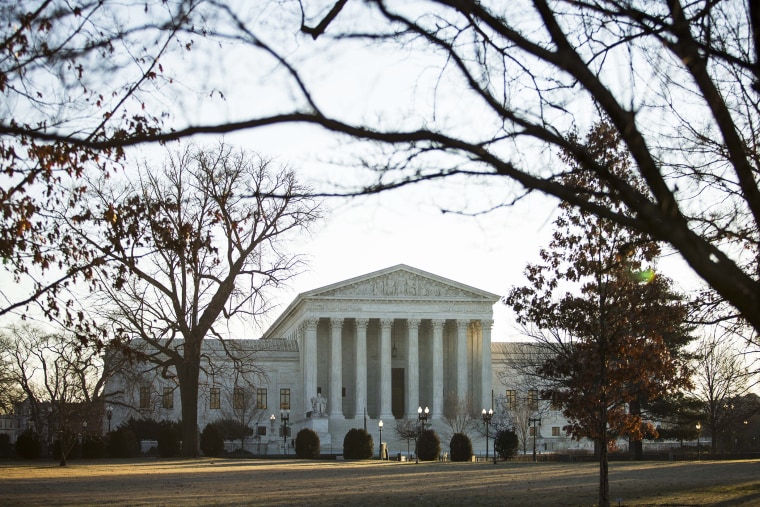The U.S. Supreme Court on Wednesday granted a stay of execution for three Oklahoma death row inmates until the justices rule on a separate challenge involving the controversial sedative midazolam, NBC News' Pete Williams reported.
The court's order on Wednesday came just five days after the justices decided to take up the challenge this spring over the use of midazolam, which was used recently in problematic executions in Arizona, Ohio, and Oklahoma. The justices' decision marked the first time since 2008 that the high court has agreed to hear a challenge to the legality of lethal injection. The inmates' lawyers and the state had requested a temporary halt to their upcoming planned deaths.
RELATED: Oklahoma executes first inmate since botched lethal injection
The prisoners include Richard Glossip, who was scheduled to die Thursday night, as well as Benjamin Cole and John Grant, who were to be executed in February and March respectively.
"I want to just say that truly the eyes of the world are on Oklahoma today," Sister Helen Prejean, a prominent opponent of capital punishment, said Wednesday. She noted that more than 30,000 people around the world have signed a petition against Glossip's death. "I believe that many people simply don't understand how the people of Oklahoma can allow this to be done in their name."
The court's order left open whether the state can execute an inmate without using midazolam, The Associated Press reported.
Last April, Clayton Lockett and Charles Warner were scheduled to be executed with previously untested drugs two hours apart from one another at the Oklahoma State Penitentiary. Lockett, the first to die, suffered a heart attack after officials injected him with a lethal drug. As it was being administered, Lockett reportedly shook uncontrollably and gritted his teeth before the eventual failure of his vein.
After Lockett's death, Oklahoma’s attorney general agreed to stay Warner's execution. He was put to death earlier this month on Jan. 15 -- Oklahoma's first inmate to die by lethal injection since Lockett's botched execution.
The United States saw the lowest number of executions in two decades in 2014, a year in which several high-profile, botched executions faced intense public scrutiny, and questions were raised about new drug cocktails that were used in lethal injections. Thirty-five people were executed nationwide last year, down from 39 who were executed in 2013, according to a report released in December by the Death Penalty Information Center.
RELATED: Georgia executes 'intellectually disabled' inmate
The United States is one of 40 countries in the world that still employs capital punishment. More than two-thirds — 141 countries — have abolished the death penalty, according to Amnesty International. Polling shows that, since 1937, support for the death penalty has been as low as 42% in 1966, and as high as 80% in 1994.
The death penalty is constitutional in the United States if it imposes on individuals no more pain than is necessary, which is stated in the Eighth Amendment's ban on cruel and unusual punishment.
